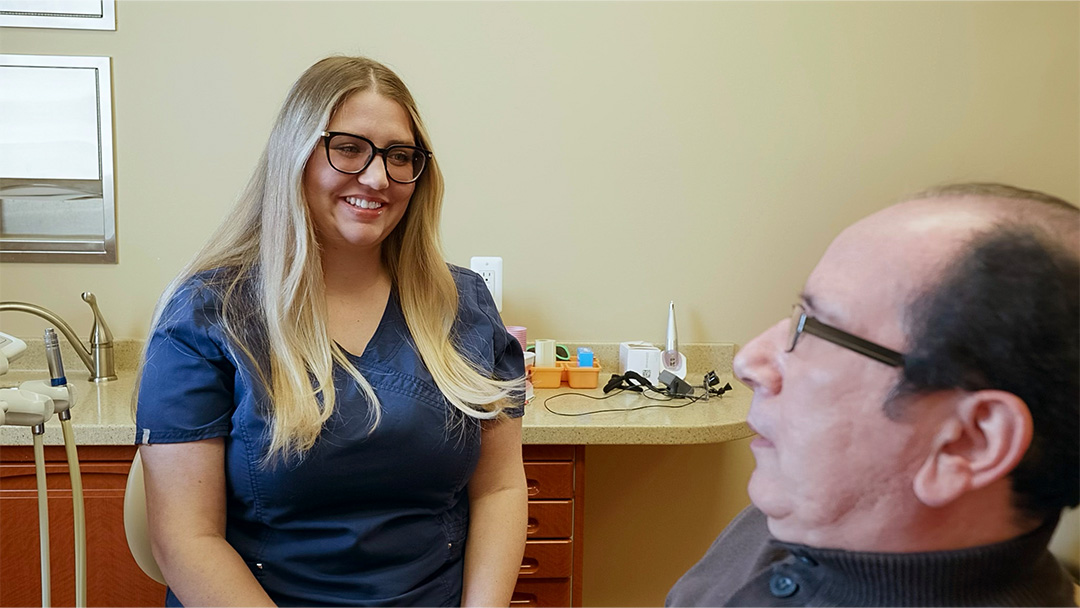When it comes to replacing missing teeth, dental implants offer more than just an aesthetic solution. They play a critical role in keeping your jawbone healthy, preventing the bone deterioration that typically occurs after tooth loss. For patients seeking a long-term, functional, and health-promoting option, our Southgate dental implant dentists can introduce you to this gold standard procedure.
Here’s a deep dive into how dental implants work to preserve the structure and health of your jawbone.
Why a Happy, Healthy Jawbone Matters
The jawbone is responsible for supporting and anchoring teeth in place. However, when a tooth is lost due to trauma, decay, or other reasons, the jawbone in the area no longer receives the stimulation it needs from the tooth root. This lack of stimulation leads to bone resorption, a process where the body reabsorbs the bone tissue, resulting in a reduction of bone density and volume.
Learn More → 6 Clear Signs Your Smile Would Benefit From Dental Implants
Over time, this bone loss can cause a variety of issues. The most noticeable effect is a change in facial structure, leading to a sunken or aged appearance. Additionally, bone loss can make it difficult to replace missing teeth with traditional methods like dentures or bridges, as there is less bone available to support them. This is where dental implants provide a crucial benefit.
How Dental Implants Prevent Bone Loss
Dental implants are designed to mimic the natural structure of teeth. The implant itself is a small, titanium post that is surgically placed by our dentists into the jawbone, where it acts as an artificial tooth root. Once implanted, the post fuses with the bone in a process called osseointegration. This bond between the dental implant and the jawbone helps stimulate the bone in the same way a natural tooth root would, preventing bone loss and maintaining jawbone density.
Related Post → Why Dental Implants Are Worth the Investment
By placing the implant into the bone, the pressure and stimulation from everyday activities like chewing and speaking are transferred to the jawbone. This stimulation encourages the body to continue regenerating and maintaining the bone tissue, just as it would if a natural tooth were still present. As a result, the bone remains strong and stable, preserving both the functionality of the mouth and the structure of the face.
Where Bone Grafting Fits Into the Equation
For some patients, particularly those who have been missing teeth for an extended period, significant bone loss may already have occurred. In such cases, there may not be enough bone available to support an implant. Fortunately, dental bone grafting can provide a solution.
Bone grafting is a procedure that adds bone material to areas of the jaw where bone has been lost. This material can come from a donor or be synthetic. Once placed, the graft encourages new bone growth, eventually integrating with the existing jawbone. After the graft has healed and sufficient bone mass has been restored, dental implants can then be successfully placed.
Bone grafting ensures that even patients with severe bone loss can benefit from the advantages of dental implants. By restoring the jawbone’s volume and density, bone grafting creates a solid foundation for implants, allowing them to function as intended and prevent further bone deterioration.
Dental Implants, Your Jaw, & the Future
The long-term benefits of dental implants for jawbone preservation are undeniable. Unlike dentures or bridges, which rest on the surface of the gums and do not interact with the underlying bone, implants actively work to maintain bone structure. Patients who opt for implants experience less bone loss over time, and their jaw remains strong and capable of supporting dental function.
Additionally, because implants preserve the jawbone, they also help maintain the overall structure of the face. Patients who replace missing teeth with implants are less likely to experience the facial sagging or premature aging often associated with tooth loss and bone deterioration. This results in a more youthful appearance and better long-term oral health.
Start the Dental Implant Process
By mimicking the natural function of tooth roots, implants put a stop to bone loss that often occurs after a tooth is lost. If you’re considering this option, our dental implant dentists in Southgate, MI, can go into more detail about how the procedure’s value extends beyond simply restoring your smile. Call Northline Dental today at (734) 284-8088 to request an appointment.


